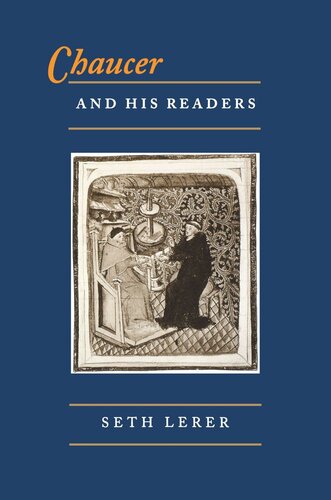

Most ebook files are in PDF format, so you can easily read them using various software such as Foxit Reader or directly on the Google Chrome browser.
Some ebook files are released by publishers in other formats such as .awz, .mobi, .epub, .fb2, etc. You may need to install specific software to read these formats on mobile/PC, such as Calibre.
Please read the tutorial at this link: https://ebookbell.com/faq
We offer FREE conversion to the popular formats you request; however, this may take some time. Therefore, right after payment, please email us, and we will try to provide the service as quickly as possible.
For some exceptional file formats or broken links (if any), please refrain from opening any disputes. Instead, email us first, and we will try to assist within a maximum of 6 hours.
EbookBell Team

4.4
52 reviewsChallenging the view that the fifteenth century was the "Drab Age" of English literary history, Seth Lerer seeks to recover the late-medieval literary system that defined the canon of Chaucer's work and the canonical approaches to its understanding. Lerer shows how the poets, scribes, and printers of the period constructed Chaucer as the "poet laureate" and "father" of English verse. Chaucer appears throughout the fifteenth century as an adviser to kings and master of technique, and Lerer reveals the patterns of subjection, childishness, and inability that characterize the stance of Chaucer's imitators and his readers. In figures from the Canterbury Tales such as the abused Clerk, the boyish Squire, and the infantilized narrator of the "Tale of Sir Thopas," in the excuse-ridden narrator of Troilus and Criseyde, and in Chaucer's cursed Adam Scriveyn, the poet's inheritors found their oppressed personae. Through close readings of poetry from Lydgate to Skelton, detailed analysis of manuscript anthologies and early printed books, and inquiries into the political environments and the social contexts of bookmaking, Lerer charts the construction of a Chaucer unassailable in rhetorical prowess and political sanction, a Chaucer aureate and laureate.